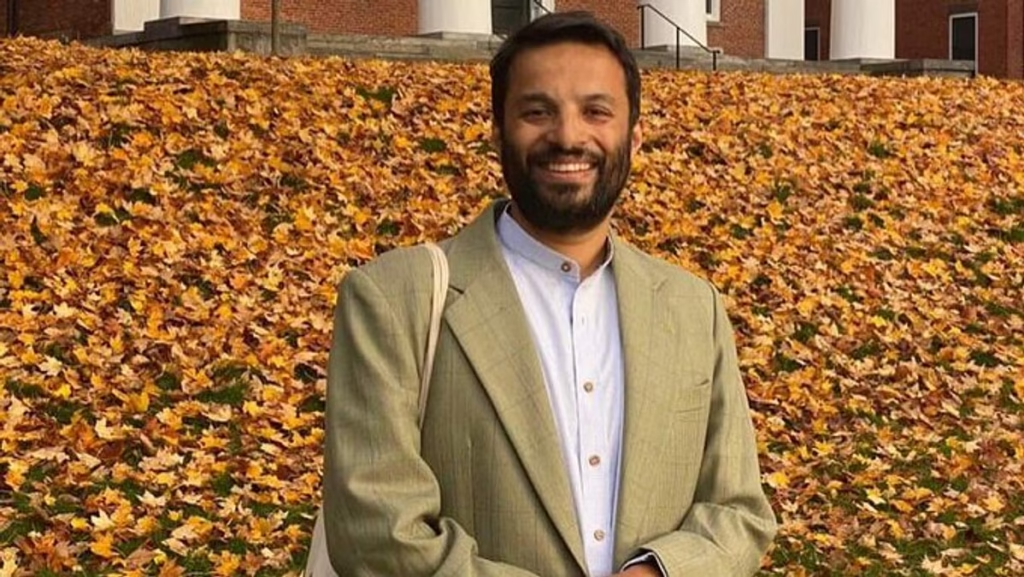Ali Khan Mahmudabad Arrest: The long road from arrest to relief, and what it says about India today
Dr. Ali Khan Mahmudabad didn’t wake up on May 20 expecting to become a national headline. But by evening, his name was trending on social media, being discussed in television studios, and hotly debated in courtrooms. All because of a tweet.
The associate professor at Ashoka University, a prestigious liberal arts college in India, had posted a statement on X (formerly Twitter) that referenced “Operation Sindoor” — the Indian government’s global diplomatic campaign to expose Pakistan-sponsored terrorism. The language in his post, as the Supreme Court later said, might have been “a form of dog-whistling.”
And that’s where everything spiraled.
The tweet that shook the establishment-Ali Khan Mahmudabad Arrest
Ali Khan Mahmudabad’s now-deleted post drew sharp criticism for what many perceived as anti-national sentiments. Within hours, right-wing influencers, anonymous accounts, and even politicians were calling for his arrest. Screenshots were shared, hashtags like #ArrestAliKhan began trending, and by nightfall, the professor was in police custody.
For many, the arrest was shocking, but not surprising. In recent years, India has seen a growing pattern where academics, journalists, and students face legal trouble over their speech—especially when it challenges the dominant political narrative.
A campus united in protest
Back at Ashoka University in Sonipat, the arrest hit like a thunderclap.
Students gathered in silence near the central quadrangle. Posters with messages like “Free Ali Sir” and “We Stand With Mahmudabad” began to appear. For them, Dr. Mahmudabad wasn’t just a professor. He was a mentor, a friend, someone who made Islamic history and constitutional law come alive in classrooms that were always buzzing with questions.
“He made us believe that dissent is not disloyalty,” said Aanya Kapoor, a third-year student of Political Science. “And now he’s being punished for exactly that.”
Faculty members organized rotating vigils, some even offering to resign if the university failed to support its own. The university, for its part, issued a carefully worded statement, expressing concern and calling for due process.
The Supreme Court steps in – Ali Khan Mahmudabad Arrest
In a dramatic turn, the case reached the Supreme Court of India on May 21. Senior advocate Indira Jaising represented Dr. Mahmudabad, arguing passionately that the arrest was a blatant violation of free speech.
“What he said may be critical, even provocative,” Jaising told the bench, “but it was not criminal. A democracy must be able to withstand criticism.”
Chief Justice D.Y. Chandrachud listened intently. At one point, he remarked, “The tweet was problematic. It could have been phrased better. But is it enough to put someone behind bars?”
After hours of arguments and counter-arguments, the Court granted interim bail.

For more updates and other exciting news, visit our website now!
Freedom, with a warning
Dr. Mahmudabad is free for now, but under conditions. The Court cautioned him not to comment further on “Operation Sindoor” and advised restraint on public platforms. The investigation will continue, but the professor won’t have to sleep in a cell tonight.
The judgment was a mix of relief and rebuke. The Court criticized the language of the tweet but stopped short of endorsing the arrest, trying to walk the fine line between protecting free speech and maintaining national sentiment.
For Mahmudabad’s supporters, it was a bittersweet win.
The deeper battle: Free speech or controlled speech? – Ali Khan Mahmudabad Arrest
This episode isn’t just about one professor and one tweet. It’s about something larger — the space for intellectual freedom in India.
“I fear we’re becoming a nation that can’t take criticism,” said Prof. Rajat Sen, a historian at Delhi University. “If a university professor can’t speak up without fear, who can?”
Indeed, “Operation Sindoor” — launched by the Indian government as a global effort to expose Pakistan-backed terrorism — has gained massive international traction. But critics argue that the patriotic fervor around it is now being used to suppress any dissent, or even mild questioning.
It’s a pattern seen before — with students at JNU, comedians like Munawar Faruqui, and journalists like Siddique Kappan. Ali Khan Mahmudabad is just the latest name on that list.
A scholar, not a slogan
What makes this story all the more poignant is who Dr. Mahmudabad is. An Oxford-educated historian, he comes from a lineage that’s deeply woven into India’s political fabric. His great-grandfather was a key figure in the freedom struggle. His family home once hosted giants like Nehru and Maulana Azad.
“He’s a patriot, in the truest sense,” said Prof. Meenakshi Sharma, who teaches alongside him at Ashoka. “And yet, he’s being painted as anti-national. It’s heartbreaking.”
What now? – Ali Khan Mahmudabad Arrest
For now, Dr. Mahmudabad is back home. But the case isn’t over. The charges haven’t been dropped. And the larger question—about how far academic freedom can go in today’s India—remains.
Students at Ashoka plan to continue their vigil. Faculty are preparing to file collective petitions if needed. And across India, intellectuals are watching with bated breath.
Is this just another blip in the growing tension between speech and sentiment? Or the beginning of a deeper reckoning?
Only time will tell.
But one thing’s clear: the classroom isn’t just a place for textbooks anymore. It’s a battlefield for truth.















